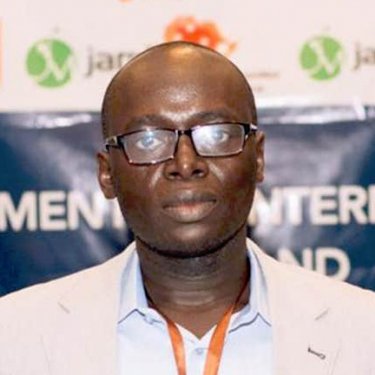Tanzania: Journalist must be freed and given medical care, RSF says

As the Tanzanian authorities prepare to bring investigative reporter Erick Kabendera before a court in Dar es Salaam tomorrow, Reporters Without Borders (RSF) urges them to release him and allow him to receive appropriate medical attention without delay.
In what condition will Kabendera appear in court tomorrow? Held since 29 July, he is reportedly suffering from respiratory problems and showing signs of paralysis in his legs that is preventing him from walking properly. Several relatives have told RSF they suspect the deterioration in his health is linked to his imprisonment.
A freelancer for respected media outlets such as The Guardian and The East African who specializes in investigative reporting on Tanzania’s politics and economy, Kabendera was originally arrested for questioning about how he had obtained his Tanzanian citizenship.
After several changes in the charges against him in the days that followed, he is now accused of “money laundering, tax evasion and assisting a criminal racket” – charges that do not allow release on bail. Originally set for 19 August, his trial has already been delayed twice because the prosecution said it needed more time to investigate.
“Arrest by plainclothesmen, three changes to the charges and several trial postponements due to a lack of prosecution evidence – everything suggests that the purpose of these proceedings is to intimidate and silence an investigative reporter critical of Tanzania’s government,” said Arnaud Froger, the head of RSF’s Africa desk.
“All this is compounded by the fact that Erick Kabendera has been kept in pre-trial detention despite a considerable decline in his health, so the Tanzanian authorities no longer have any choice: he must be released and given medical treatment without delay.”
In an unusual joint statement about an individual case, the US and British governments called on Tanzania to guarantee due process for Kabendera and criticized the “irregular handling” of his arrest, detention, and indictment.
A few days before his arrest, Kabendera discovered that his phone had been blocked and he was unable to obtain any explanation from the telephone company, RSF has learned. Nine days before his arrest, he co-authored a story about tension within Tanzania’s ruling party and an alleged plot to prevent President John Magufuli from running for a second term.
Press freedom has deteriorated steadily since Magufuli became president in 2015. Laws have been passed restricting freedom of expression and information, newspapers have been closed and journalists have often been arrested.
After Azory Gwanda, a reporter for The Citizen and Mwananchi newspapers, went missing in November 2017, no serious attempt was made to find him and no serious investigation was ever conducted into disappearance. In June of this year, the foreign minister referred to him as having “died” but later retracted.
Tanzania is ranked 118th out of 180 countries in RSF’s 2019 World Press Freedom Index after falling 47 places since 2016, more than any other country in the world during the same period.



